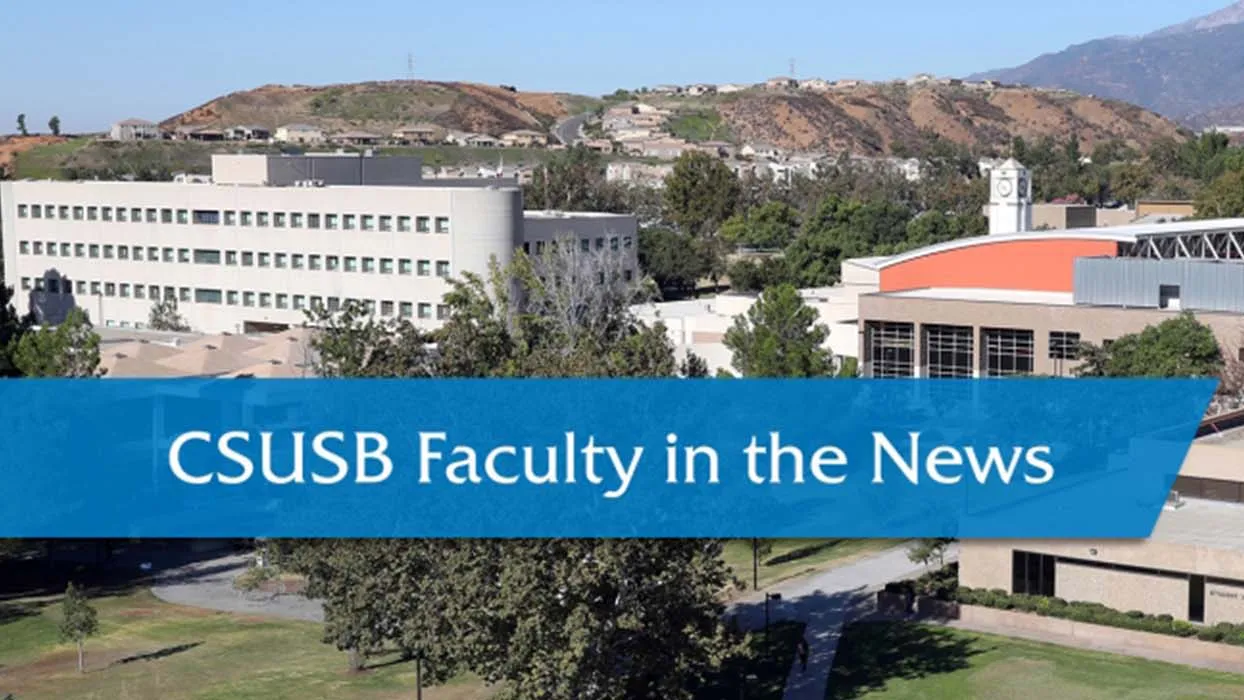NOTE: Faculty, if you are interviewed and quoted by news media, or if your work has been cited, and you have an online link to the article or video, please let us know. Contact us at news@csusb.edu.
CSUSB professor interviewed about arrest of U.S. soldier charged with giving classified info to neo-Nazi group
NBC News
June 22, 2020
Brian Levin, director of CSUSB’s Center for the Study of Hate and Extremism, was interviewed about the case of a U.S. Army soldier stationed overseas has been charged with passing along information to a white supremacist, neo-Nazi group about his unit's planned deployment overseas, intending it to get extremist groups to attack it.
Levin commented on the Order of the Nine Angles, a U.K.-based white supremacist group, that the soldier is accused of passing along information to. He described the group as "a decades old extreme satanic Nazi cult whose glorification of violence and mysticism has found a renewed international audience, including some young violent American neo-Nazis."
Army Private Ethan Phelan Melzer, 22, of Louisville, Kentucky, faces a host of federal attempted murder charges, handed up Monday by a federal grand jury, that carry a maximum sentence of life in prison.
Read the complete article at “Army soldier charged with giving classified info to neo-Nazi group.”
NASCAR driver’s stand to ban Confederate flag from races discussed by CSUSB professor
The Sun/Southern California News Group
June 22, 2020
In his column about a noose found in the garage stall of NASCAR’s Bubba Wallace – the sport’s only Black driver – writer Jim Alexander interviewed Brian Levin, director of CSUSB’s Center for the Study of Hate and Extremism, for perspective.
Wallace has been outspoken about banning the Confederate flag from NASCAR events. The FBI is investigating the incident as a possible hate crime.
“I lived down in Alabama for a little while,” said Levin. “There are still, particularly in that part of the country, those who rally around the Rebel flag.”
And, he said, it’s worth noting that a banner originally displayed by secessionists in support of slavery was dusted off in the era “from about 1915 to 1926,” when segregation was hardening, and then again during the civil rights battles of the ’50s and ’60s.
“In other words, they were taken out of the props department as a particularized message against civil rights.” he said.
“Part of this is cultural. And what I mean is there’s still, down South and in other parts of the country too, a neo-Confederate movement which has existed for some time, that has tried to whitewash the atrocities of slavery and the Confederate States’ defense of it.”
Later in the article, “Athletes are beloved cultural figures,” Levin said. “And when they speak, particularly in a sport (like NASCAR) that is so devoid of African-Americans, it’s going to have resonance, particularly now. Timing is everything in this world.”
Read the complete article at “Alexander: A reprehensible act that could be a positive turning point.”
CSUSB professor interviewed on ‘How big of a threat is homegrown terrorism?’
WWL Radio, New Orleans, La.
June 23, 2020
Brian Levin, director of the Center for the Study of Hate and Extremism at California State University, San Bernardino joined radio talk show host Tommy Tucker to talk about the complex landscape of extremist groups, movements and individuals, and the potential threat they might pose.
Listen to the segment at “How big of a threat is homegrown terrorism?”
These news clips and others may be viewed at “In the Headlines.”
